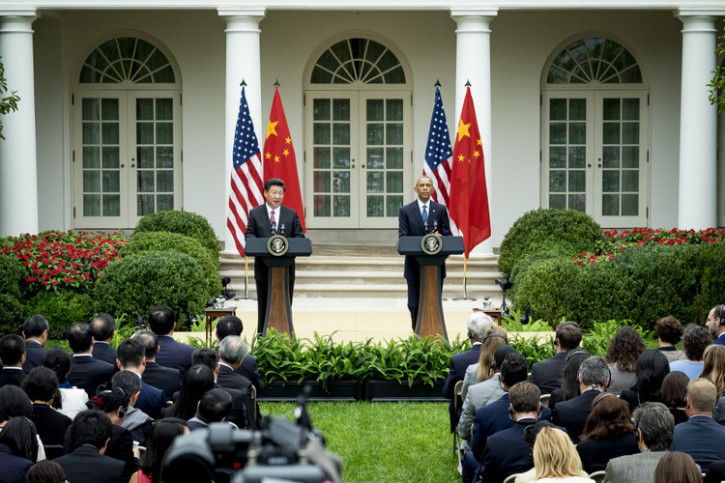By Henry M. Paulson, Jr.

The eyes of the global climate community are on Paris next week, where international leaders will be striving to negotiate multi-party diplomatic agreements that will help the planet avoid the worst climate outcomes. But our best hope for fighting climate change is if just two of these countries, the United States and China—the world’s largest economies and biggest carbon emitters—work together as leaders on this issue, setting strong reduction targets for other nations to follow.
There are reasons for optimism in both countries. The bilateral climate announcement made by Presidents Barack Obama and Xi Jinping a year ago, in which China committed to peak its carbon emissions by 2030 (a commitment it formalized in its submission to the Paris process) and the U.S. promised to reduce its own emissions as much as 28% below 2005 levels by 2025, demonstrated that the two countries see opportunity to work together on this crucial issue. China’s more recent commitment to launch a nationwide carbon cap and trading system puts that country on an even more ambitious path than the U.S.
I’ve been working in China for decades, and it seems to me that on climate change, China means business—at least for now. That’s because the move to reduce carbon emissions is connected to the broad fundamental transition China has undertaken to create a more sustainable economic model. The old export-driven, state investment-reliant model has run out of steam. And so China’s leaders are driving the country toward a more services-focused economy, which by definition will be less carbon intensive. In a newly published Grantham Institute paper, “China’s ‘New Normal,’: structural change, better growth, and peak emissions,” environmental economists Fergus Green and Nicholas Stern argue that given China’s current economic rebalancing, the peak in China’s carbon dioxide emissions from energy, and in overall GHG emissions, is likely to occur as early as 2025—opening “the possibility that global GHG emissions could be brought onto a pathway consistent with the international goal of limiting global warming to no more than 2°C.”
In addition to peaking carbon emissions, China has made national commitments to change its energy mix to be at least 20% driven by renewable sources (from a current 9%1), address its air quality crisis, and diversify its economy away from its dependence on heavy industry. Taken together, these commitments demonstrate China’s goal to model a new kind of economic growth that is more sustainable from both an economic and an environmental perspective.
The Paulson Institute is working on these issues at many levels in China—from advocating for power sector pricing and policy reform to engaging at a more local level with the country’s mayors, who are focused on making real change on the ground. China’s urbanization plans will see some 100 million people moving to the cities in the next five years, and the mayors are at the frontlines of implementing a new economic policy that ideally will ensure that happens in a sustainable fashion.
And so while state leaders focus on national-level negotiations in Paris, the Paulson Institute will convene an event with Chinese mayors at the Climate Summit for Local Leaders, which will be hosted by the city of Paris and the Bloomberg Foundation. The panel discussions will focus on the role China’s cities can play in fighting climate change and promoting more sustainable development. Given that some 50% of the world’s buildings are going up in China, there is tremendous opportunity, for example, in introducing policies focused on reducing energy use in buildings, which globally account for some 40% of all carbon emissions.
There will be challenges in China’s transition to a low-carbon model, for sure, from mapping out job restructuring and creating new jobs in the services sector to convincing vested interests to move away from inefficient, energy-intensive industry. Key to China’s commitments will be the country’s willingness to provide the data and transparency necessary to work with the international climate community and show that Chinese leaders are serious about making these changes.
Make no mistake: China’s progress on climate and pollution issues is not happening because of the Paris talks. Beijing is making moves to transition its economy because the old model no longer works, and because the public is clamoring for a cleaner environment. Nonetheless, the UN process provides an important opportunity for China to show the rest of the world that it is serious about addressing climate change.
Henry M. Paulson, Jr., is Chairman of the Paulson Institute.


